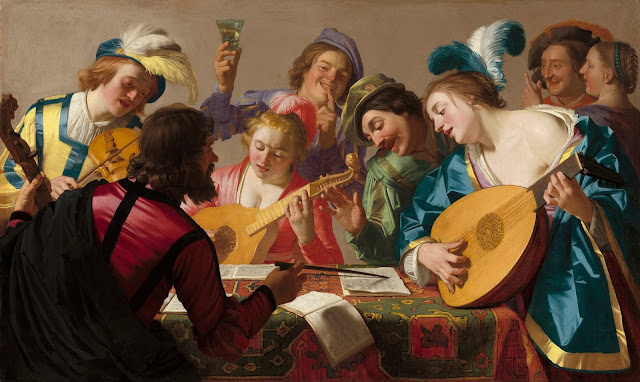Music is a social process, an art addressed to, performed with, and enjoyed in the company of others. In all places and at all times music has been woven into the fabric of community life. Like architecture, music in society is a coordinating force. Its function may be as elementary as that of a work song or that of a symphony. Music, then, is one of the experiences by which people realize their humanity and create meanings for life.
Music has a direct relation to the various social occasions for which it is designed. Like the other arts, it is always addressed to some segment of society. Religious events, civic celebrations, and official functions all call for appropriate music. And, in previous times, special music was usually commissioned for such purposes.
Since music has so many functions to fulfill, the very diversity of the sources of patronage is one of its special protections. In periods such as the middle Ages, the church selected, educated, and encouraged the finest available talents. During the Renaissance, the musical direction tented more toward country entertainment, and many noblemen supported the training of numerous outstanding musicians. In modern times, a vast and anonymous group patron known as “the public” contributes to its support, not for the composer, but for the free market – the concert hall, the opera house, and the recording industry.
Like other works of art, a piece of music is a bridge between the world of inner experience and the world of external reality. Through the eyes and ears of their musicians, societies can see and hear aspects of their world they never saw or heard before. Composers are as deeply sensitive to their environment as any of their fellow citizens. Music moves its mountains slowly, yet it shapes the spirit of humanity, as surely as any other force. Composers live in the world of tone. Through their tonal perceptions they direct their moving materials, build their sonorous masses, and create their musical shapes. As they put together the sounds that reflect their experiences and reactions to the world, they must obviously do so in terms of a tonal language that their audience can understand. The music of a period tells not only of its harmonies but also of tis conflicts. In periods of oppression, music represents the passion of the human heart. In periods of religious revival, it sings out declarations of faith. In ages of reason, it reflects the logical processes of well-ordered minds. There are those, however, who feel strongly that history is irrelevant to a particular piece of music, because the musical work is essentially a personal document, a record of how one person felt and reacted. In this view, all music is self-expression. It is a personal autobiography rather than a social commentary. Some individuals are by nature more sensitive than others…
Music adapts itself to all conditions of society. It is a courtly art, an art of the salon, the lyric expression of the revolutionaries. And it will be the voice of the democratic societies of the future, as it was the voice of the aristocratic societies of the past. No formula will hold it. It is the song of centuries and the flower of history. Its growth pushes upward from the griefs as well as from the joys of humanity.
Presentation by Stavros Kottakis






No comments:
Post a Comment